Discover Talking Indonesia
Talking Indonesia

Talking Indonesia
Author: Talking Indonesia
Subscribed: 3,043Played: 20,910Subscribe
Share
© All rights reserved
Description
In the Talking Indonesia podcast, Dr Jemma Purdey, Dr Jacqui Baker, Tito Ambyo and Dr Elisabeth Kramer present an extended interview each fortnight with experts on Indonesian politics, foreign policy, culture, language and more. Find all the Talking Indonesia podcasts and more at the Indonesia at Melbourne blog.
236 Episodes
Reverse
There are many things that drive migration to other countries, and one of them is romantic relationships and marriages. But Asian women who are developing relationships with men from Western countries, like Australia, be it through snail mails, online sites or other means, often have to face the stereotype of the ‘subservient woman’.
This stereotype has a history that still haunts us. In the case of Australia, the history goes way back to the First Fleet, but it also has a lot to do with the way multiculturalism is framed in this country.
In a new book, the anthropologist Emeritus Professor Kathryn Robinson looks at intercultural marriages between Asian women and Australian men. The book, titled ‘Marriage Migration, Intercultural Families and Global Intimacies’, mostly looks at the lives of Filipina women who married Australian men, but the book is also about multiculturalism in Australia and the history of the damaging stereotype of the ‘subservient oriental women’ that many Indonesian women, in Australia, Indonesia and around the world, still have to face.
In this episode, Tito Ambyo also chats with Kathryn about the importance of food and dancing for Filipina and Indonesian women who have migrated to Australia, digital ethnography best practices and some tips on how to do good research on Indonesia today.
In 2023, the Talking Indonesia podcast is co-hosted by Tito Ambyo from RMIT, Dr Jemma Purdey from Monash University, Dr Elisabeth Kramer from the University of New South Wales, Tito Ambyo from RMIT and Dr Jacqui Baker from Murdoch University.
Indonesians have a saying that you’re not properly satisfied until you’ve eaten rice (belum kenyang kalau belum makan nasi). But in recent weeks the price of rice has hit record highs, meaning that this daily serving of rice is becoming out of reach for some.
In 2023 an EL Niño weather pattern across Indonesia made it the hottest year on record, leading to drought conditions and impacting rice production, with delayed harvests and low yields. Since late last year rice prices have continued to climb and with Idul Fitri approaching, prices for basic foods - including rice - are spiking to historic levels. Media reports show people queuing for hours at markets and President Joko Widodo has committed to providing 10 kilograms of rice a month to low-to-middle income households. The government claims that national rice stores are sufficient, but close observers note that cartels and collusion within the industry are also playing a part. At the same time - and an issue highlighted in the recent election campaign - over one in five Indonesian children under the age of five are affected by stunting due to poor nutrition.
What is the current state of food production and food security in Indonesia, especially when it comes to rice, and what part does the past play in policymaking about the present? Why is the rate of stunting in children and poor nutrition still at such high levels? How can Indonesia’s food policy respond?
In this week's episode Jemma chats with Associate Professor Jamie Davidson from the Department of Political Science and the Asia Research Institute at the National University of Singapore, where he is leader of the Cluster ‘Food Politics and Society’. Jamie’s research compares the politics of rice policy in Indonesia, the Philippines, and Malaysia.
In 2024, the Talking Indonesia podcast is co-hosted by Dr Jemma Purdey from the Australia-Indonesia Centre, Dr Jacqui Baker from Murdoch University, Dr Elisabeth Kramer from the University of New South Wales and Tito Ambyo from RMIT.
Image: Workers are seen at a Bulog rice warehouse in Medan, North Sumatra, on 28 February 2024. (ANTARA FOTO/Fransisco Carolio/foc)
How do religious minorities fare under the constitution and blasphemy laws in Indonesia? The Indonesia Constitution seems to guarantee religious freedom so long as you believe in an almighty god. However, there are many real-life cases where it seems this is not enough. Add to this blasphemy laws, which have existed since the 1960s, and we can see that Indonesia has legal tools that can be easily weaponsised against individuals who express views that fall foul of the religious majority around them.
In this podcast, Elisabeth Kramer talks to Dr Al Khanif about the state of religious rights and freedom of expression, and how jural traditions, the interpretations of laws based on historical and social norms, have made it even more difficult to assert these rights.
Dr Khanif is the head of the Center for Human Rights, Multiculturalism and Migration at the University of Jember.
In 2024, the Talking Indonesia podcast is co-hosted by Dr Elisabeth Kramer from the University of New South Wales, Dr Jemma Purdey from the Australia-Indonesia Centre, Dr Jacqui Baker from Murdoch University and Tito Ambyo from RMIT.
Caption: Thousands of people protest remarks made by Jakarta Governor Basuki “Ahok” Tjahaja Purnama on 4 November 2016. Photo by Akbar Nugroho Gumay for Antara.
In the early 20th century in Sumatra, a movement of young women writers were finding new ways to express their identities, build communities and achieve their dreams. Soenting Melajoe was the first newspaper for women published in West Sumatra during the colonial era in the Dutch East Indies. The newspaper was a part of a larger constellation of people working together to help women find education and employment through writing and crafts like weaving.
Tito Ambyo’s guest is Bronwyn Beech Jones, a PhD candidate at the University of Melbourne, and a recipient of the Hansen Scholarship in History. Her completed PhD, called Textual Worlds: Rethinking self, community, and activism in colonial-era Sumatran women’s newspaper archives, looks at how women and girls from Sumatra articulated their experiences and conceived of themselves, their communities and aspirations in Malay language periodicals published between 1912 and 1929.
In 2023, the Talking Indonesia podcast is co-hosted by Tito Ambyo from RMIT, Dr Elisabeth Kramer from the University of New South Wales, Dr Jemma Purdey from Monash University and Dr Jacqui Baker from Murdoch University.
Energy transition
In the recent national elections, the candidates paid surprisingly little attention to one of the greatest challenges Indonesia and the world at large is currently facing – that of climate change. At the same time, for more and more Indonesians, climate change induced natural disasters like droughts, storms and floods are increasingly impacting their lives.
Indonesia has committed to the Paris Agreement to limit global warning to 1.5 degrees Celsius and signed up to achieve zero carbon emissions by 2060, including peaking emissions from the energy sector by 2030. Reaching these targets will have a lot to do with how it transitions from a reliance on fossil fuels to renewable energy sources. For a nation on a steep growth trajectory that includes downstreaming and elevated productivity, and with large coal reserves at its disposal, this is a massive challenge. What are Indonesia’s stated commitments and ambitions towards an energy transition away from fossil fuels? Does it have a plan to get there? What will it take?
In this week’s episode Jemma Purdey chats with Wicaksono Gitawan, Just Energy Transition Associate at Yayasan Indonesia CERAH, an Indonesian non-profit organization working to advance the energy transition policy agenda in Indonesia.
In 2024, the Talking Indonesia podcast is co-hosted by Dr Jemma Purdey from the Australia-Indonesia Centre, Dr Jacqui Baker from Murdoch University, Dr Elisabeth Kramer from the University of New South Wales and Tito Ambyo from RMIT.
Image: Suralaya coal-fired power plant in Cilegon, Banten Province, ANTARA/HO-PLN
Prabowo has exceeded expectations to claim victory in 2024 Indonesian presidential election.
What do our Talking Indonesia's co-hosts think about the result? Who are the winners and losers? What were the most interesting aspects of the campaign behind Prabowo’s success? And how did a pack of cigarettes save our co-host, Tito Ambyo, from possible jail time in the Suharto era?
In this episode of Talking Indonesia, the co-hosts Jemma Purdey, Lis Kramer, Jacqui Baker and Tito Ambyo get together to chat about the election result, their analysis plus their hopes and fears for the future of Indonesian democracy.
In 2023, the Talking Indonesia podcast is co-hosted by Dr Elisabeth Kramer from the University of New South Wales, Dr Jemma Purdey from Monash University, Tito Ambyo from RMIT and Dr Jacqui Baker from Murdoch University.
Photo by Adi Wibowo/Antara.
Faris Al Fadhat - Big Business
Conglomerates are the main players in the Indonesian economy, controlling core industries like agribusiness, banking and property and telecommunications. They are often built over multiple generations of a single, often ethnic Chinese, family.
Indonesia’s biggest conglomerates - Sinar Mas Group, Royal Golden Eagle, Lippo group and Salim group - and their their owners are household names. Their businesses have an immeasurable impact on the daily lives of Indonesians: from the soap they use to wash the dishes, to the phone credit they use, and even to the hospitals they attend.
Over the past two decades, Indonesia’s biggest conglomerates have emerged not just as domestic oligarchs but increasingly as regional players. This has come about through a series of acquisitions and joint ventures, but also through expansion enabled by the ASEAN regional economic architecture.
To help us understand how Indonesian big business has transformed Indonesia and is now reshaping our region, Jacqui Baker chats with Faris Al Fadhat, Senior Lecturer in the Department of International Relations at the Muhammadiyah University Yogyakarta. Faris is the author of the 'Rise of International Capital: Indonesian Conglomerates in ASEAN' and his new book 'Expansi Kapital', which was published by Kompas Publishing (2023).
In 2024, the Talking Indonesia podcast is co-hosted by Dr Jacqui Baker from Murdoch University, Dr Jemma Purdey from Monash University, Tito Ambyo from RMIT and Dr Elisabeth Kramer from the University of New South Wales.
Photo by Julien from Flickr.
With the election just weeks away the campaign for the presidency is in full flight. The three candidates – Prabowo Subianto, Ganjar Pranowo and Anies Baswedan – are proven campaigners and already familiar faces, but as has been the case in Indonesian politics for a while now, it is the coalitions they form around their tickets that will prove decisive on election day and in the government they ultimately lead. Indeed, Prabowo’s choice of Joko Widodo’s son and current mayor of Solo, Gibran Rakabuming Raka as his running mate is shaping up to be a strategic victory for both the Prabowo and Jokowi camps.
So, what is the state of the current campaign? What is likely to happen on and after 14 February? In the end, does it matter who wins if a coalition of opponents and other parties and interest groups will govern together anyway? What does such a state of coalitional presidentialism mean for the future of democracy in Indonesia?
In this week’s episode Jemma Purdey chats with Marcus Mietzner, Associate Professor at the Department of Political and Social Change, Coral Bell School of Asia-Pacific Affairs, Australian National University. He is author of the recently published 'The Coalitions Presidents Make: Presidential Power and Its Limits in Democratic Indonesia', Cornell University Press, Ithaca, N.Y., 2023.
In 2024, the Talking Indonesia podcast is co-hosted by Dr Jemma Purdey from Monash University, Dr Jacqui Baker from Murdoch University, Dr Elisabeth Kramer from the University of New South Wales and Tito Ambyo from RMIT.
Look out for a new Talking Indonesia podcast every fortnight. Catch up on previous episode here, subscribe via Apple Podcasts or listen via your favourite podcasting app.
Image: @prabowo Instagram, 7 January 2024
Since the most recent conflict erupted between Israel and Gaza following the October 7 Hamas’ attacks and Israel’s subsequent mass bombings of the Gaza strip, the Indonesian public and government have overwhelmingly condemned Israel's actions. Like most Muslim nations around the world, Indonesia’s solidarity with Palestine is long-standing and deeply felt. Large solidarity gatherings held over the past few months and Indonesia’s diplomatic efforts on the world stage, demonstrate the importance of Palestine for how Indonesia sees its role internationally, but also in relation to politics, security and social harmony at home.
With no formal diplomatic recognition, relations between Israel and Indonesia are facilitated between third parties, and therefore direct interactions between the two peoples is rare. Yet, for Indonesians, be they Muslim or Christian, this part of the world and the idea of ‘Arabness’ holds special and sacred meaning and has a strong pull. As Indonesia’s expanding middle classes enjoy greater access to international travel, religious tourism has enabled both Muslim and Christian Indonesians to encounter Israel and Palestine firsthand.
How are movements between the two countries without official relations negotiated? What are its impacts on those who participate – the tourists, the agents and the local businesses? For those Indonesians who visit, have in-country encounters shifted perceptions and pushed back against a binary view of the Israel-Palestine conflict? What effect might the current war have on long held hopes that Indonesia can play a role as a bridge between the two sides in this intractable conflict?
Jemma Purdey explores these questions with Mirjam Lücking, who is an anthropologist working on various forms of globalized mobility, such as migration and tourism, intercultural encounters, modern religious lifestyles (in particular, Muslim and Christian), and social media in the context of transregional connections between Indonesia and the Middle East. She is the author of Indonesians and Their Arab World: Guided Mobility among Labor Migrants and Mecca Pilgrims (Southeast Asia Program Publications by Cornell University Press, 2020) and has published several articles on Muslim and Christian pilgrimage-tourism from Indonesia to Jerusalem. Her insights stem from ethnographic research in various places in Indonesia and in Israel and Palestine. Mirjam is assistant professor at the Department of Social and Cultural Anthropology at the University of Munich.
In 2023, the Talking Indonesia podcast is co-hosted by Dr Jemma Purdey from Monash University, Tito Ambyo from RMIT, Dr Elisabeth Kramer from the University of New South Wales and Dr Jacqui Baker from Murdoch University.
Image: Indonesian pilgrims in Jerusalem / Mirjam Lücking
The Indonesian word ‘pemuda’, or young person, has a complex meaning and history. Like in other languages and cultures, the term conjures up images of change and vitality. But in Indonesia, it also carries militaristic and masculine connotations which are coloured by the way it was used during the New Order era.
In his PhD thesis at the University of Melbourne, Jonathan Tehusijarana traces the term back to the history of Tentara Pelajar, student militia units, that were active during the Indonesian War of Independence. He chats with Tito Ambyo about the fate of these Tentara Pelajar veterans, which was often determined by the needs of the political elites – some found political, intellectual and cultural success in post-war Indonesia, while others were not so fortunate.
In 2023, the Talking Indonesia podcast is co-hosted by Tito Ambyo from RMIT, Dr Elisabeth Kramer from the University of New South Wales, Dr Jemma Purdey from Monash University and Dr Jacqui Baker from Murdoch University.
The choice by Indonesians to become a foreign overseas worker, known as Tenaga Kerja Indonesia (TKI), is viewed primarily as an economic one. Working in countries such as Malaysia, Singapore, Taiwan, Hong Kong or further afield in the Middle East, is perceived to offer possibilities beyond what they might hope for back home. The Indonesian government itself recognises the crucial role played by overseas migrant workers, with the World Bank estimating in 2016 that over US $8.9 billion flowed back to Indonesia via remittances.
However, it is limiting to view overseas workers' experiences purely in terms of economics. There are, of course, ongoing identity negotiations that mirror the complexities of being in a new and different land, particularly when it comes to religion and gendered expectations.
Lis Kramer's guest today, Dr Lailatul Fitriyah, has researched and published on the migrant worker experience through an intersectional lens, focusing particularly on how gender and religion shape the lived experiences of women working overseas. She gained her PhD thesis from the University of Notre Dame’ Department of Theology and she is an Assistant Professor of Interreligious Education at the Claremont School of Theology in California.
In 2023, the Talking Indonesia podcast is co-hosted by Dr Elisabeth Kramer from the University of New South Wales, Dr Jemma Purdey from Monash University, Tito Ambyo from RMIT and Dr Jacqui Baker from Murdoch University.
Kate McGregor - Activism, Memory and Sexual Violence
During its Occupation of East Asian and Southeast Asian countries in World War II, including the Netherlands Indies, the Japanese military installed a system of enforced prostitution, known euphemistically as the ‘comfort women’ system.
Today these crimes are relatively well-known and condemned. In 1993 the Japanese state issued an apology known as the Kōno statement. In the 1980s and 1990s, a transnational activist movement which included women from Korea, Japan, the Philippines and elsewhere, began to speak out and make demands for redress. In Indonesia, however, activism on the so-called ‘comfort women’ issue was slower to emerge, faced with challenges from both inside and outside the country.
In her new book 'Systemic Silencing: Activism, Memory and Sexual Violence in Indonesia', Kate McGregor takes a close look at the system itself and seeks to understand it in the context of Indonesia’s own colonial and post-colonial history. What were the social contexts in Indonesia prior to and following the Japanese Occupation in relation to women, sexual exploitation and prostitution? What did it take for the voices of these survivors to be heard? How is this period in Indonesia’s history remembered today? And what are its legacies for activism on sexual violence?
In this week's episode Jemma Purdey chats with Kate McGregor, professor of Southeast Asian history in the School of Historical and Philosophical Studies at the University of Melbourne.
In 2023, the Talking Indonesia podcast is co-hosted by Dr Jemma Purdey from Monash University, Lis Kramer from UNSW, Tito Ambyo from RMIT and Dr Jacqui Baker from Murdoch University.
Image: Book cover illustration of Indonesian 'comfort women' by feminist scholar and artist Dewi Candraningrum / 'Systemic Silencing: Activism, Memory and Sexual Violence in Indonesia', University of Wisconsin Press, Madison, 2023.
As of July 2023, Indonesia had 139 million YouTube viewers giving it one of the biggest YouTube audiences in the world. But beyond the numbers, YouTube has also become an influential cultural force in Indonesia.
YouTubers are shaping what we listen to and watch. YouTube food vloggers are changing the food we eat and the way we eat it. YouTube has even created a burgeoning career path for people who are finding new ways to produce and share their ideas - whether that be religious teachings, horror stories or new genres of music.
And yet, the world of YouTube in Indonesia still remains under-researched on the international stage.
In this podcast, Tito Ambyo chats with panelists at the Indonesia Council Open Conference at the University of Sydney in September 2023. Andina Dwifatma is a PhD candidate at Monash University who is researching Islamic web series in Indonesia. Erika Suwarno is a PhD candidate at the University of Melbourne who is looking at the early history of YouTube in Indonesia. Dr William Yanko is a researcher best known for his research on Indonesian Hip-Hop.
Together, they explore questions about YouTube in Indonesia: what is it, what does it look like, and what does it mean to be a YouTube researcher.
In 2023, the Talking Indonesia podcast is co-hosted by Tito Ambyo from RMIT, Dr Jacqui Baker from Murdoch University, Dr Elisabeth Kramer from the University of New South Wales and Dr Jemma Purdey from Monash University.
Indonesia has sadly been the site of many crimes and mass atrocities, but uncovering all the details is fraught with challenges. How many people were killed or injured? Who was at fault? Who was in charge?
And yet, as long as these events are shrouded in mystery, wrongdoing can go unpunished, victims stay unheard and we are unable to learn from our collective mistakes.
In this podcast, Jacqui Baker chats with writer and law student Aisyah Llewellyn. Aisyah is a former diplomat who started her own true crime newsletter and podcast called Hukum. She is currently completing her second bachelor's degree in Indonesian law in North Sumatra.
In her career, Aisyah has closely reported on many crimes and two mass violations of human rights. Most recently, in Kanjuruhan, where 135 people were killed last October when police fired tear gas into an overcrowded football stadium.
But her most detailed long term investigation has focused on the mass atrocities committed in Aceh. These crimes were carried out by the Indonesian military, but aided and abetted by Exxon Mobil, who were operating the lucrative Arun gas field in Aceh. These events would trigger Aceh’s 30 year long secessionist movement.
In this podcast we talk about what justice looks like after the mass atrocities, like in Aceh and Malang. We also segway into Aisyah's other fascination - Indonesian shamanic serial killers.
In 2023, the Talking Indonesia podcast is co-hosted by Dr Jacqui Baker from Murdoch University, Dr Elisabeth Kramer from the University of New South Wales, Dr Jemma Purdey from Monash University and Tito Ambyo from RMIT.
Photo by Moch Asim for Antara.
Indonesia is the largest Muslim majority country in the world, but it is not an Islamic state. The place of Islam within the state has been contested over the years, with proponents for and against a larger role for Islam in government and in the lives of citizens. The groups who advocate for a more prominent role for Islam occupy a wide spectrum of ideologies, approaches, and tactics. In the post-Soeharto era, terrorist acts have drawn attention through a handful of small, but committed, jihadist organisations mounting bombings at a variety of sites including churches, hotels, and, perhaps most famously, Balinese bars.
In this episode we talk about pathways to extremism. Why do some people gravitate towards, and join, religious extremist organisations? How can we understand the difference between extremist and terrorist groups? And what important role do social relationships play in facilitating memberships and networks in this context?
In this week's episode, Elisabeth Kramer chats with guest Dr Julie Chernov Hwang, who is an Associate Professor in the Department of Political Science and International Relations at Goucher College in Maryland. She’s especially interested in how social networks facilitate entry into and exit from jihadist groups in Southeast Asia. She’s the author of a number of books including Why Terrorists Quit, published by Cornell University Press in 2018 and her most recent book is Becoming Jihadis: Radicalization and Commitment in Southeast Asia, published this year by Oxford University Press.
In 2023, the Talking Indonesia podcast is co-hosted by Dr Jemma Purdey from Monash University, Tito Ambyo from RMIT, Dr Jacqui Baker from Murdoch University and Dr Elisabeth Kramer from UNSW.
Image by Masjid Pogung Dalangan from Unsplash.
Caption: Close-up of hands held up in Islamic prayer.
Joko Widodo’s recent trip to four African countries marked the first ever by an Indonesian head of state. The President’s five-day visit took him to Kenya, Tanzania and Mozambique, before finishing in South Africa where he attended the meeting of the BRICS (Brazil, Russia, India, China, South Africa) group of nations in Johannesburg. In his address to the BRICS conference Jokowi evoked the ‘spirit of Bandung’ in reference to the Asia-Africa conference held in the West Java capital in 1955 and called for solidarity and cooperation between the nations of the Global South. But Indonesia stopped short of accepting an invitation to join the expanding group, which is seen as a potential challenge or alternative to Western hegemony in a changing new world order.
So, what motivated such a high-level trip to Africa? Why did Jokowi choose to make such an historic visit at this stage in his presidency? What is the current state of Indonesia-Africa relations and what might Indonesia’s ambitions be for its future in the continent?
In this week's episode Jemma Purdey chats with Dr Christophe Dorigné-Thomson who holds a PhD in Politics from the Faculty of Social and Political Sciences at Universitas Indonesia, and a Master in Business/Management (Grande Ecole Programme) with a major in Finance from ESSEC Business School. His research focuses on foreign policy (Indonesia, Asia-Africa, and European nations notably); political economy; external powers’ engagement with Africa, Asia, and Europe, including political, economic, and defense and security approaches; and Indonesian, Asia-Africa, and Western politics. His forthcoming book, Indonesia's Engagement with Africa, will be published in 2023 by Palgrave Macmillan.
In 2023, the Talking Indonesia podcast is co-hosted by Dr Jemma Purdey from Monash University, Tito Ambyo from RMIT and Dr Jacqui Baker from Murdoch University.
Image: Antara/Press Bureau of Presidential Secretariat
Caption: President Joko “Jokowi” Widodo (left) and his host Mozambique President Filipus Nyusi wear traditional headbands as they attend the opening of the National Festival of Culture at Red Bulls Association Field in Maputo on Aug. 23, 2023.
Indonesians around the world will celebrate Independence Day in a range of ways on 17 August. Some will hold festivals in big cosmopolitan cities, serving Indonesian food to hungry diasporas, while Indonesian villagers will hold traditional celebrations with simple games and competitions, like tug of war and kerupuk eating. Many of these traditions have changed little since the New Order era. This leads us to ask, what should we think about independence in the context of Indonesia today?
We see that 78 years after Soekarno proclaimed independence in 1945 – Indonesians are still asking the question “sudahkah kita merdeka?” – are we truly independent yet? The question is asked so often it has become a cliché, but now many academics and activists are engaging with the question more seriously through frameworks and theories of decoloniality.
In this week’s episode of Talking Indonesia, Tito Ambyo chats with Tamara Soukotta, who recently defended her PhD thesis at the International Institute of Social Studies at Erasmus University in Rotterdam. In her thesis, she argues that to understand the Ambon conflicts that started in 1999, we need to view the conflict through a lens of decoloniality. Moreover, to be able to understand the processes of peacebuilding after the war, we also need to look at these events as decoloniality in praxis. In this episode, Tamara tells us about her research and shares her thoughts on celebrating Independence Day critically and decolonially - which is harder than it sounds.
In 2023, the Talking Indonesia podcast is co-hosted by Tito Ambyo from RMIT, Dr Jemma Purdey from Monash University, Dr Elisabeth Kramer from the University of New South Wales and Dr Jacqui Baker from Murdoch University.
Photo by Mo from Flickr.
Twenty-five years since embarking on its reform era following the fall of the New Order, observers, scholars and global democracy indexes agree that Indonesian democracy is in a state of regression.
Recent challenges levelled at key institutions including the Constitutional Court, the Corruption Eradication Commission, and threats to freedom of speech brought by the Information and Electronics Law (ITE Law) are evidence of significant degradation of the quality and integrity of democracy. Further, over the past two decades influence and control across the four branches of power – politics, media, civil society and business – is increasingly centred in the hands of just a few.
With the elections next year set to deliver a new government and new president, what must be done to halt further damage to Indonesia’s democracy and rule of law? What are the risks if it fails to do so?
In this week's episode Jemma Purdey chats with Professor Jimly Asshiddiqie, Professor of Constitutional Law at the University of Indonesia and a member of Indonesia’s senate, the Regional Representatives Assembly. Professor Jimly was founding Chief Justice of Indonesia’s first Constitutional Court, an adviser to presidents and ministers, was head of the Presidential Advisory Council, and former head of the Advisory Council of Indonesia’s National Commission of Human Rights. He is one of Indonesia’s leading jurists and distinguished legal thinkers, with more than 70 books to his name.
In 2023, the Talking Indonesia podcast is co-hosted by Dr Jemma Purdey from Monash University, Tito Ambyo from RMIT and Dr Jacqui Baker from Murdoch University.
Photo: KPU staff carry out drills in Banyuwangi in preparation for the general elections. Antara Foto/Budi Candra Setya.
The project of bureaucratic reform has now been ongoing for over 20 years. But what issues remain and what is the government doing to try and curb corruption and boost efficiency?
In this episode, Dr Elisabeth Kramer speaks to Dr Kanti Pertiwi about how effective efforts to improve the bureaucracy have been. They discuss the design and implementation of incentives to reform the civil service and how disparities between different ministries can impact the psyche of civil servants.
In 2023, the Talking Indonesia podcast is co-hosted by Dr Elisabeth Kramer from the University of New South Wales, Dr Jemma Purdey from Monash University, Tito Ambyo from RMIT, and Dr Jacqui Baker from Murdoch University.
Photo by Rendra Oxtora for Antara.
In January 2021, a case that became known as ‘digital-nomad-gate’ gripped both Indonesia’s social and conventional media channels and was also reported around the world. An American woman living in Bali was deported following a series of tweets in which she described her enviable and ‘elevated’ lifestyle there, encouraging others to follow. Amid a pandemic that had hit Bali’s economy particularly hard, her tweets went viral and led to a public backlash condemning her for a lack of cultural sensitivity and awareness of her own privilege. The woman was eventually deported for flouting immigration rules, although she claimed the true reasons were related to her sexuality and race.
This is just one of many cases in recent years which, due in great part to the prevalence of social media, have caught out foreigners in Indonesia for breaking laws and flouting or ignoring social and cultural norms and sensitivities. These range from taking inappropriate photos at sacred sights to ignoring pandemic protocols and refusing to abide by laws and acknowledge the right of local authorities to enforce them.
At the same time, in order to boost economies ravaged by the pandemic, government authorities have sought to attract more foreigners as so-called ‘digital nomads’ or ‘mobile professionals’ to live and work in Bali and elsewhere in the country.
So, who are these new expatriates and what is their motivation for coming to Indonesia? What can the history of expatriates in Indonesia tell us about these more recent conflicts related to cultural awareness and privilege? And do the recent tensions reflect the stresses brought by the pandemic, or are we witnessing a real shift in how Indonesians perceive foreigners living and working in their country?
In this week’s episode of Talking Indonesia, Dr Jemma Purdey chats to Anne-Meike Fechter, Reader in Social Anthropology at the University of Sussex, and author of 'Transnational Lives: Expatriates in Indonesia', Ashgate Aldershot, 2007. Her article 'Expatriates, privilege and racism', is published in Inside Indonesia, Apr-June 2021.
In 2023, the Talking Indonesia podcast is co-hosted by Dr Jemma Purdey from Monash University, Tito Ambyo from RMIT and Dr Jacqui Baker from Murdoch University.
Photo by Matt Oldfield from Flickr.


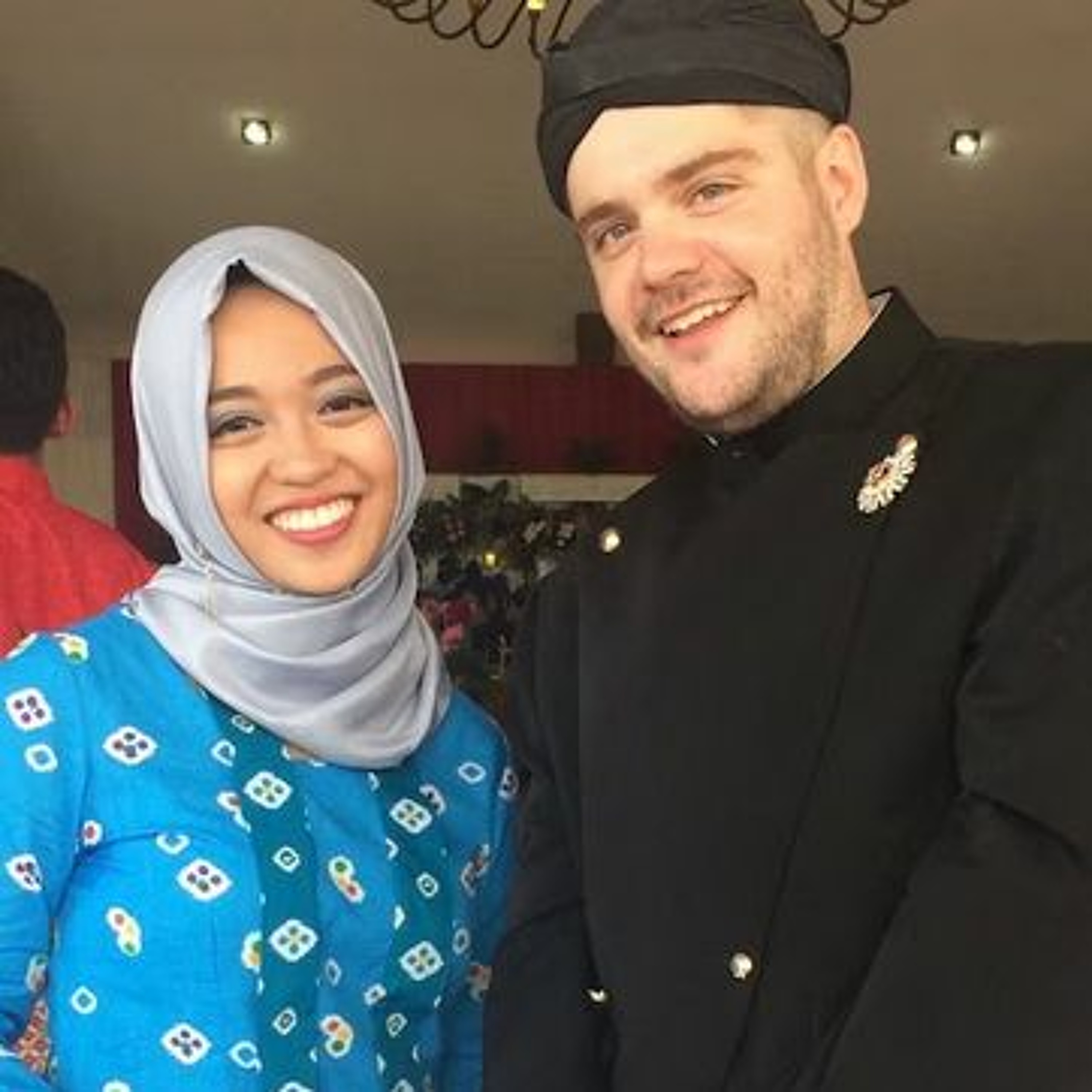
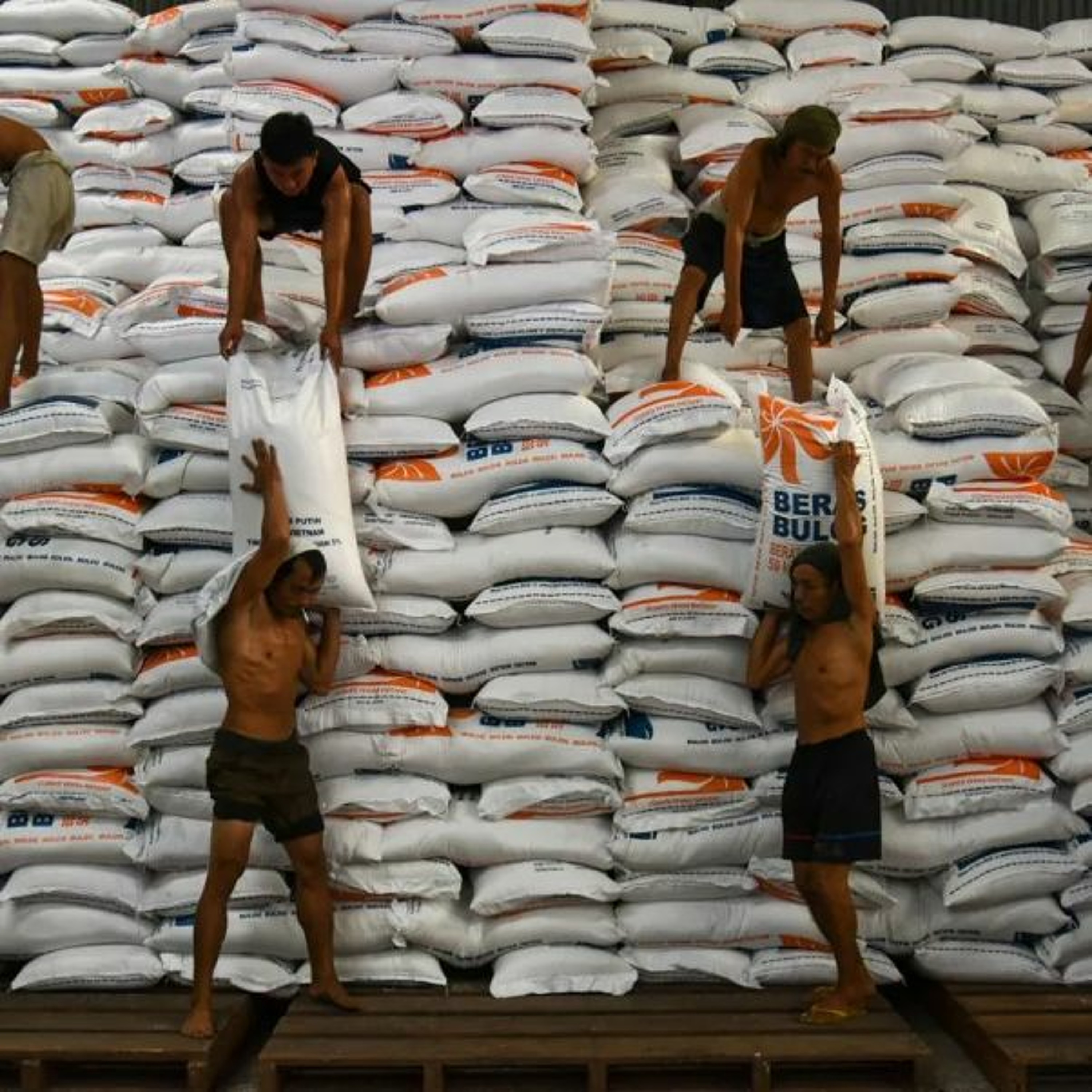



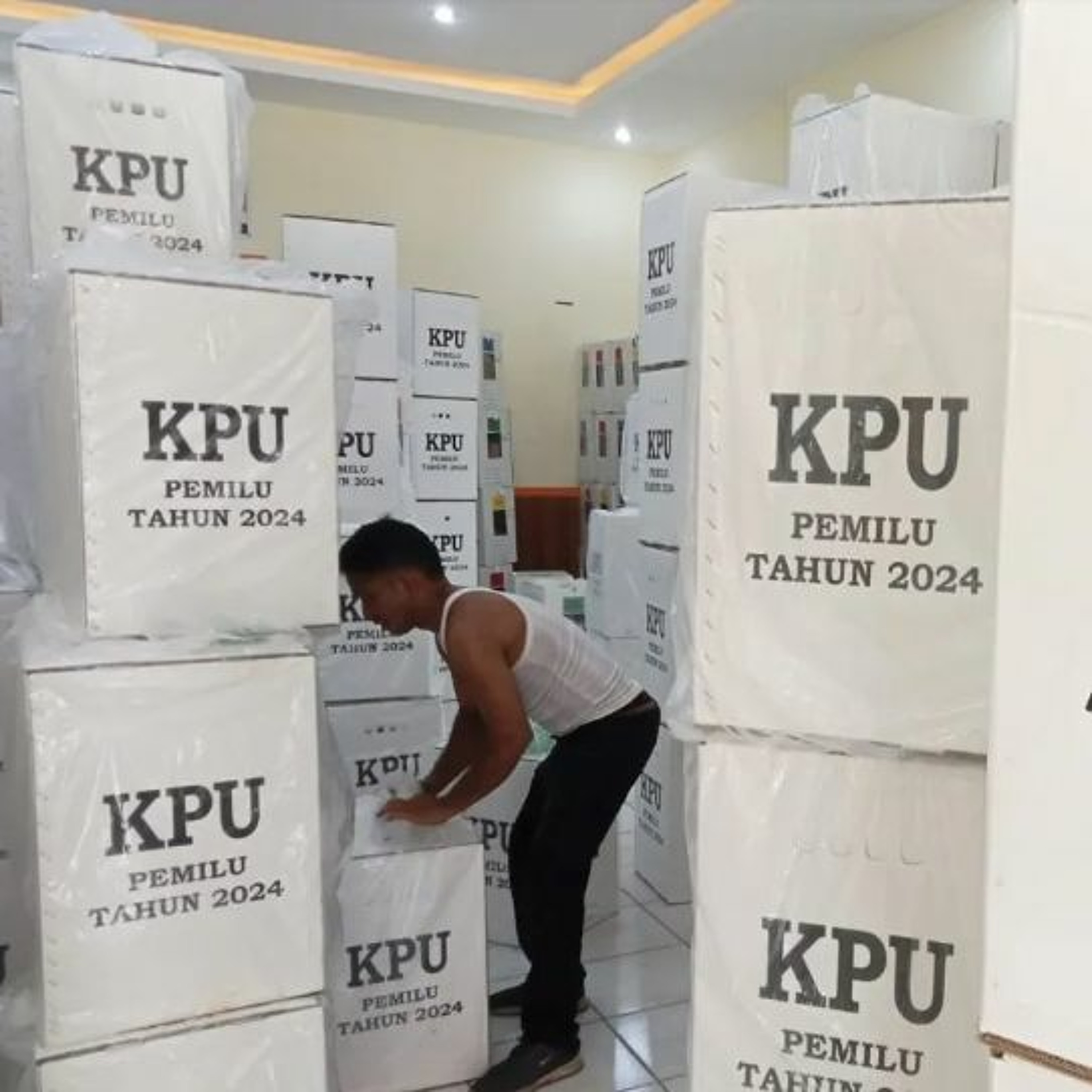




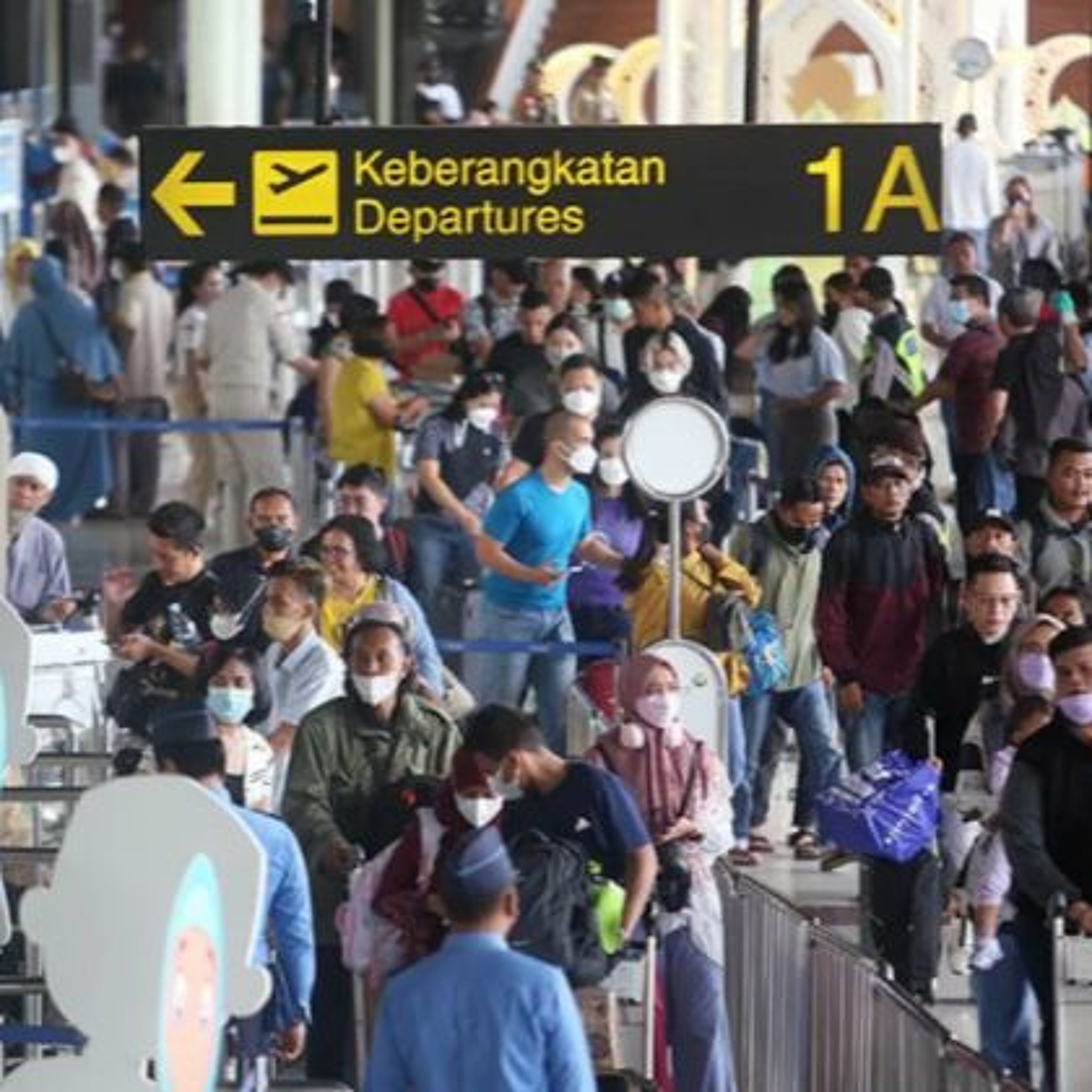
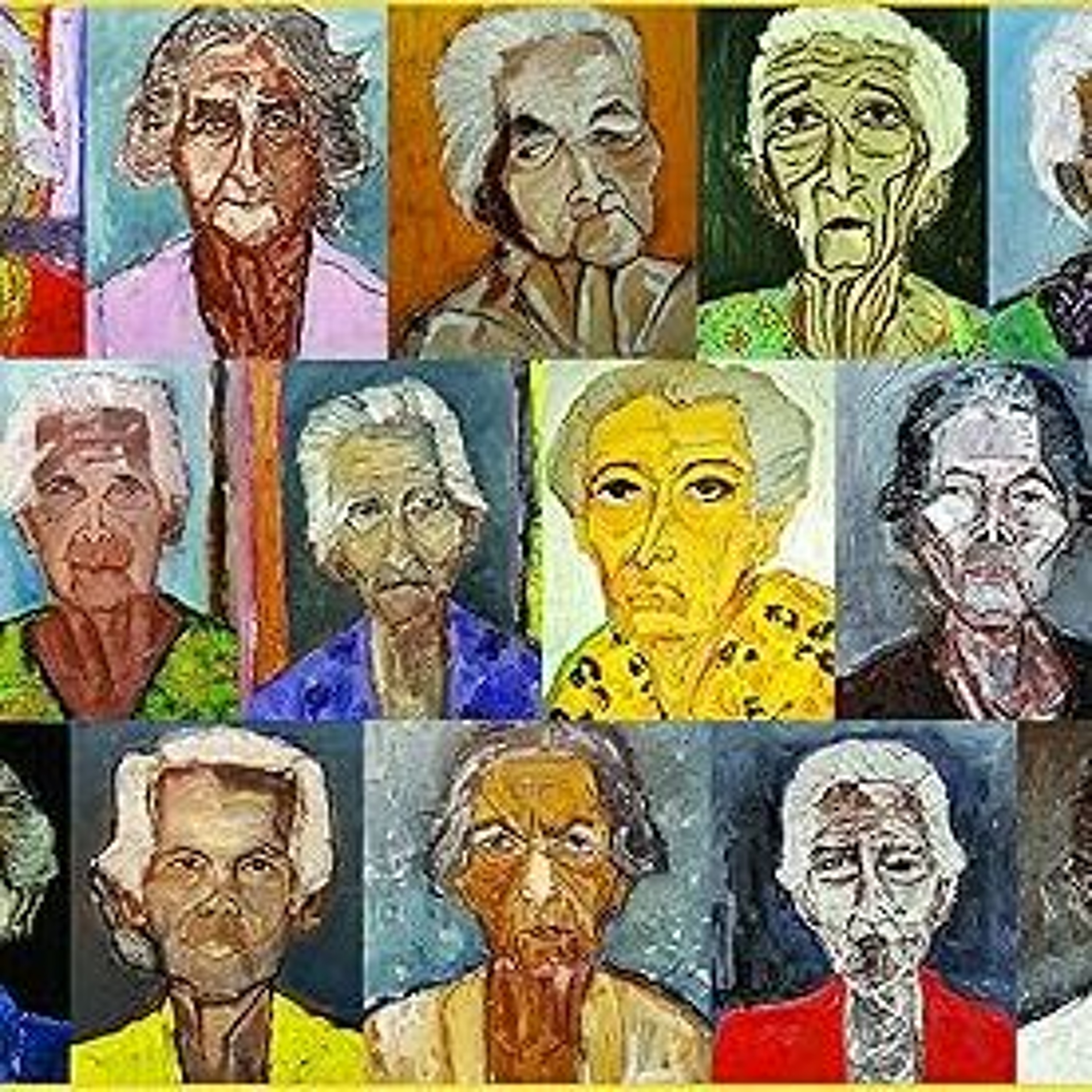




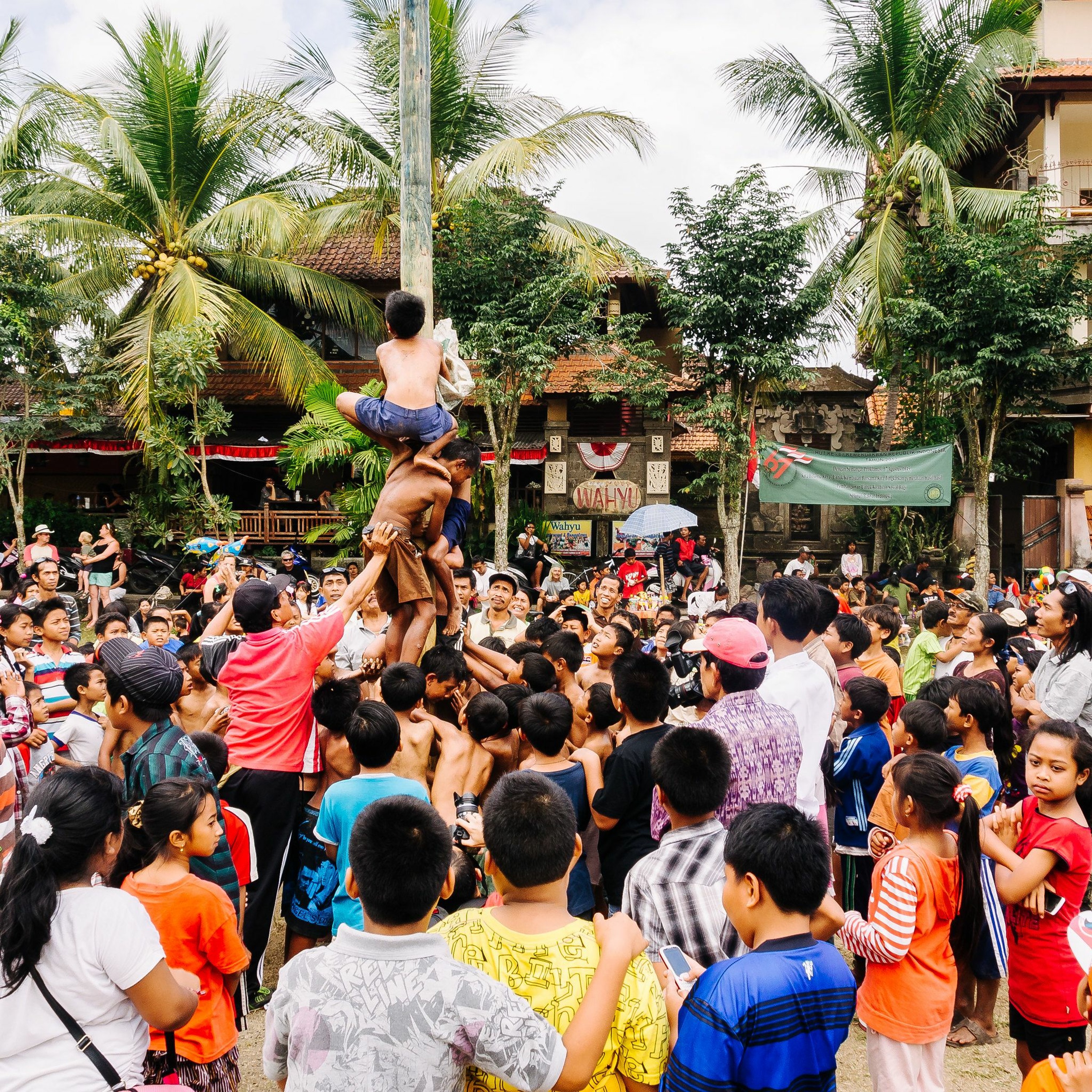
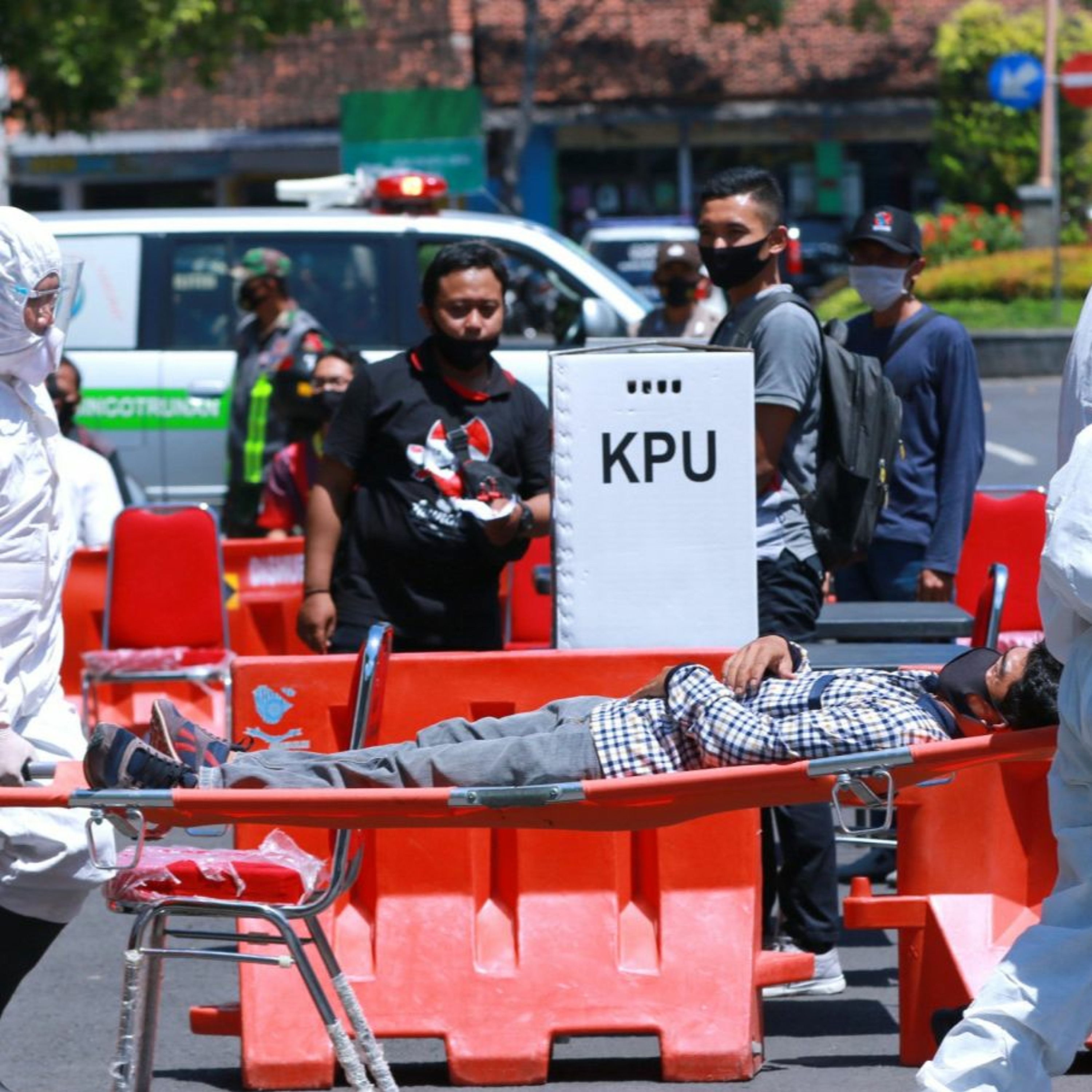

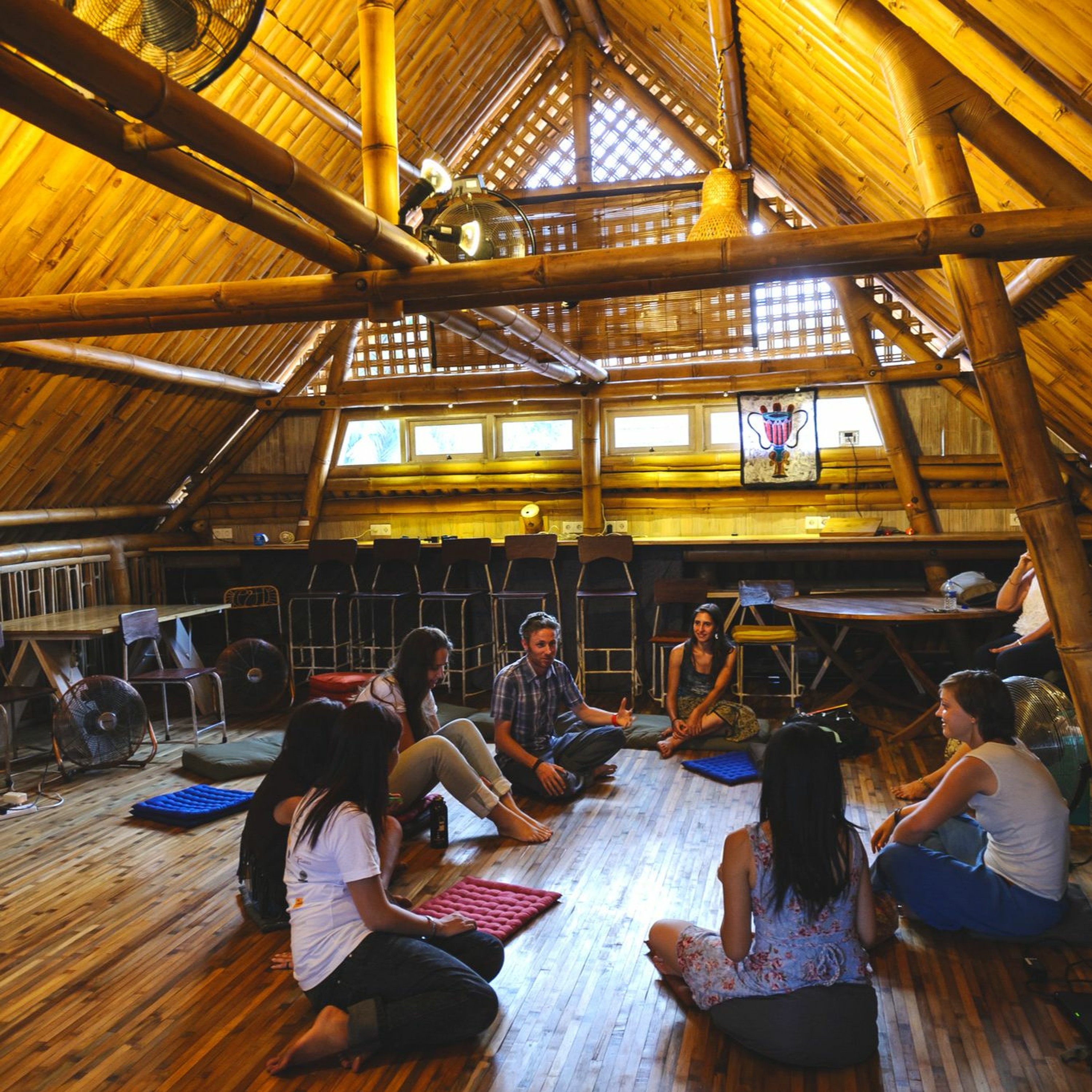



selir69, daftar selir69, link selir69, selir, selir 69, selir6 9, situs selir, bandar selir, agen selir, situs selir69, bandar selir69, agen selir69, selir69 slot, selir69 login, selir69 link alternatif, selir slot https://avodartmed.com/
selir69, daftar selir69, link selir69, selir, selir 69, selir6 9, situs selir, bandar selir, agen selir, situs selir69, bandar selir69, agen selir69, selir69 slot, selir69 login, selir69 link alternatif, selir slot https://avodartmed.com/
A depth discussion of actual issues that occurred in Indonesia by competent sources. Sharp, critical, and reliable. I am, as an Indonesian, really enjoy this podcast. You will not find a talk show like this anywhere else.